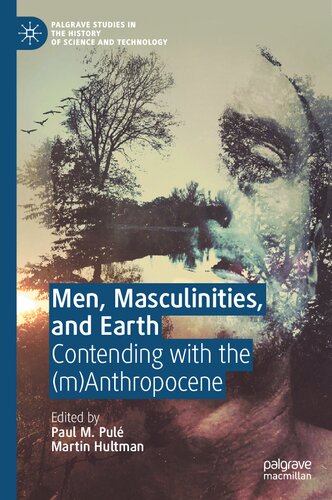

Most ebook files are in PDF format, so you can easily read them using various software such as Foxit Reader or directly on the Google Chrome browser.
Some ebook files are released by publishers in other formats such as .awz, .mobi, .epub, .fb2, etc. You may need to install specific software to read these formats on mobile/PC, such as Calibre.
Please read the tutorial at this link. https://ebooknice.com/page/post?id=faq
We offer FREE conversion to the popular formats you request; however, this may take some time. Therefore, right after payment, please email us, and we will try to provide the service as quickly as possible.
For some exceptional file formats or broken links (if any), please refrain from opening any disputes. Instead, email us first, and we will try to assist within a maximum of 6 hours.
EbookNice Team

Status:
Available0.0
0 reviewsThis book considers issues of social and ecological significance through a masculinities lens. Earth – our home for aeons – is reeling. The atmosphere is heating up, causing reefs to bleach, fisheries to collapse, regions to flood and dry, vast tracts to burn, the polar ice caps to melt, ancient glaciers to retreat, biodiversity to decline exacerbated by the sixth great extinction, and more. Meanwhile, social and economic disparities are widening. Pandemics are cauterising glocal communities and altering our social mores. Nationalism is feeding divisiveness and hate, especially through men’s violence. Politically extreme individuals and groups are exalting freedom while scapegoating the marginalised. Such are the symptoms of an emerging (m)Anthropocene. This anthology contends with these alarming trends, pointing our attention towards their gendered origins. Building on our monograph Ecological Masculinities: Theoretical Foundations and Practical Guidance (2018), this collection of essays is framed as a dinner party conversation grouped into six discursive themes. Their views reflect a growing community of practice, whose combined efforts capture the most recent perspectives on masculine ecologisation. Together, they aim to help create a more caring world for all, moving the ecological masculinities conversation forward as it becomes an established, international, and pluralised field of study.